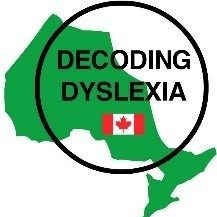“Dyslexia takes away an individual’s ability to read quickly and automatically, and to retrieve spoken words easily, but it does not dampen one’s creativity and ingenuity.”
The Yale Centre for Dyslexia and Creativity
What is dyslexia?
Dyslexia is a common learning difficulty that makes it hard, but not impossible, to read, write and spell. It can also affect processing speed, working memory and executive functioning skills. Dyslexia is on a spectrum, from mild to severe. Children with dyslexia may also have other “exceptionalities” such as dyspraxia, dyscalculia, dysgraphia, ADD/ADHD, autism and giftedness. Dyslexia is often described as a learning disability or a specific learning disorder. However, many in our community prefer the term dyslexia.
What causes dyslexia?
In the late 1800s, dyslexia was first described as “word blindness.” Today, thanks to neuroscience, we know that dyslexia is not related to how we see, but how our brain processes information. Dyslexia is often inherited, meaning it runs in families. Dyslexia is not related to intelligence or effort. In fact, children with dyslexia are often bright, creative thinkers who work extra hard to keep up. (Learn more about the Neurobiology of Dyslexia.)
How common is dyslexia?
Dyslexia is the most common learning disability, affecting 6 to 17% of the school age population regardless of sex, age, race or socio-economic status. In Ontario, there are at least 2 children with dyslexia in every classroom representing the largest category of exceptionality in the public system.
Is there a cure?
There is no “cure” for dyslexia. However, educational interventions — including early diagnosis and evidence-based reading instruction — are very effective in removing the roadblocks to reading and giving every child the opportunity to suceed at school.
Got a minute? Watch Harvard’s one-minute “What is dyslexia?” video
Dyslexia definitions
“Dyslexia is a specific learning disability that is neurobiological in origin. It is characterized by difficulties with accurate and/or fluent word recognition and by poor spelling and decoding abilities. These difficulties typically result from a deficit in the phonological component of language that is often unexpected in relation to other cognitive abilities and the provision of effective classroom instruction. Secondary consequences may include problems in reading comprehension and reduced reading experience that can impede growth of vocabulary and background knowledge.”
The International Dyslexia Association definition
“Dyslexia is an alternative term used to refer to a pattern of learning difficulties characterized by problems with accurate or fluent word recognition, poor decoding, and poor spelling abilities.”
The DSM-5 diagnostic code
